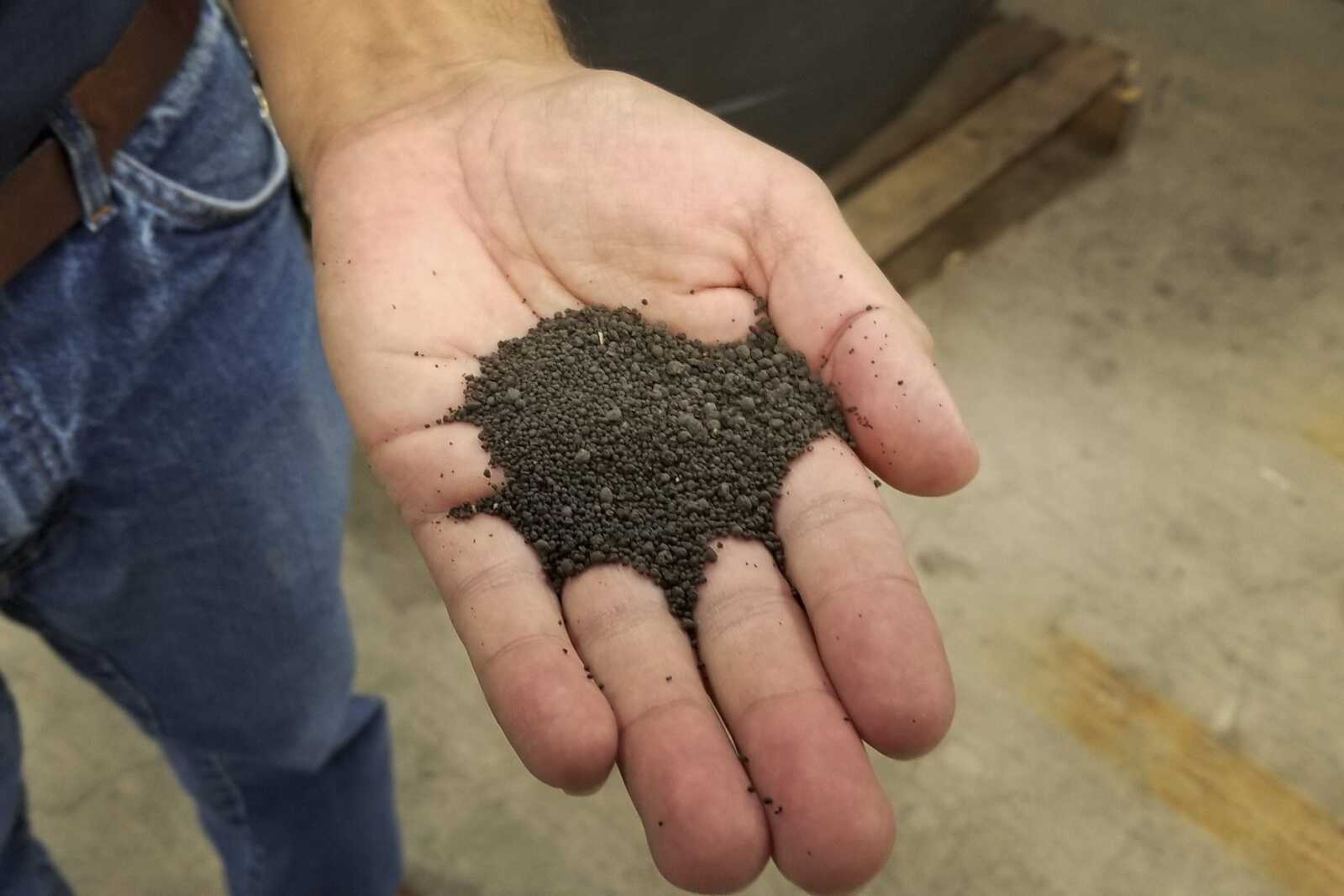Holy sludge! Find out how Cape is the No. 2 city in Missouri to recycle waste
The waste from Cape Girardeau's sinks, toilets and washing machines is being transformed into fertilizer pellets, a process that city public works director Stan Polivick said benefits both the environment and the city's bottom line. Polivick said the city won't have the cost of disposing of the sludge or biosolids at a regional landfill near Dexter, Missouri...
The waste from Cape Girardeau's sinks, toilets and washing machines is being transformed into fertilizer pellets, a process that city public works director Stan Polivick said benefits both the environment and the city's bottom line.
Polivick said the city won't have the cost of disposing of the sludge or biosolids at a regional landfill near Dexter, Missouri.
The city, he estimated, had been spending about $20,000 a month to dispose of the sludge.
The move also means the city will be putting less waste into the landfill.
"Rather than our stuff just becoming trash, it is actually a usable product that is going to benefit the environment," Polivick said Wednesday.
The city's wastewater treatment plant runs the sludge through a huge, automated dryer system that turns the waste into tiny, odorless pellets.
The city, which only began producing the pellets last month, hopes to turn out 400 tons of the pellets annually, Polivick said.
"We are really excited to finally be making it," he said.
"We can't save the world with it, but we are saving 400 tons a year," said Polivick.
A centrifuge spins the sludge to lower the water content. The biosolids are then run through the dryer system.
"It is basically a big oven or a big heat processor." Polivick said.
The dryer cooks the biosolids. "That basically kills the bacteria and things that would be harmful," he said.
The end result is tons of pellets that are considered class A biosolids, according to Polivick.
"That means it is OK to touch it with your bare skin. It is OK to use it as a fertilizer," he said.
"It could be put on a truck farm for tomatoes or green beans. It is OK to consume those vegetables that were fertilized with this product without an intermediate step," Polivick said.
Cape Girardeau is one of only two cities in Missouri that is using this dryer technology, according to Polivick.
"We are using somewhat new technology," he said. Although it has been used in Europe for some time, it is new to Missouri, he said.
Getting the dryer up and running has taken several years.
Cape Girardeau's $60 million wastewater treatment plant, located on the city's south side, opened in December 2014.
But the dryer operation was not functional, Polivick said.
Resolving operating problems took time as did a concern about dust hazards that were raised by the city's insurance company, he said.
"The insurance inspector had some concerns about the residual dust and potential that has for fire," Polivick said.
A study was done and some "corrective measures" were taken. "Some of the safety features in the equipment had to be enhanced a little bit," he said.
As a result, it has taken almost five years to get the dryer running, according to Polivick.
"We are delighted," he said of the dryer system. "We actually got it running and everything ran properly," he said.
The wastewater plant so far has made two batches of the pellets.
"We will be processing pellets probably twice a month," said Polivick. "This isn't something we do all day, every day. We make the pellets in spurts."
Each batch takes about four days to process and results in 15 to 20 tons of pellets, according to Polivick.
The automated system then conveys the pellets to a storage silo where it can be emptied into the end user's truck to be hauled off for fertilizing farm fields and golf courses, he said.
The pellets are being used to fertilize a golf course and a farmer's wheat field in Southeast Missouri, Polivick said.
The initial batches have been offered free of charge, he said.
But Polivick said the city hopes to start selling the pellets by year's end. "Ultimately, we will get a little bit of revenue out of this," he said.
"Our goal is to have one user that is going to take it all," Polivick said. "We are not going to bag it and sell it to the public."
Do you like stories about government and courts? Keep up with the latest news by signing up for our daily morning headline email. Go to www.semissourian.com/newsletters to find out more.
Connect with the Southeast Missourian Newsroom:
For corrections to this story or other insights for the editor, click here. To submit a letter to the editor, click here. To learn about the Southeast Missourian’s AI Policy, click here.









